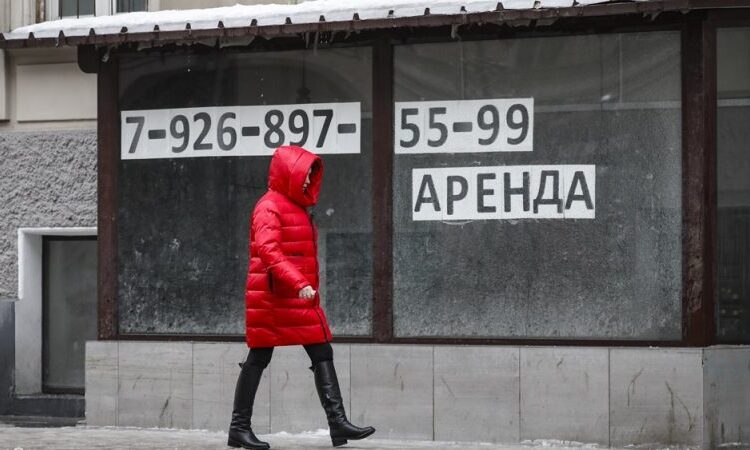
Much focus is placed on discerning the impact sanctions are having on Russia, but EU member states must first ensure robust implementation, writes Gonzalo Saiz Erausquin.
Gonzalo Saiz Erausquin is a Research Analyst at the Centre for Financial Crime and Security Studies, RUSI Europe.
With 10 packages of ‘restrictive measures’ passed to date, the EU has aimed to weaken Russia’s military capabilities and inflict financial damage on the Russian elite. At first sight, the toll of sanctions on the Russian economy has not matched expectations. Yet, a closer look beyond the headlines suggests that the impact is greater than it appears and that sanctions will slowly but permanently impair Russia’s economic and technological potential.
In a surprising comment, the EU’s chief diplomat Josep Borrell declared that ‘there is not much more to do from the point of view of sanctions’. While the need for new packages might not be as pressing as it was 12 months ago, the latest European Council statement reflected that there is still space for further sanctions and highlighted the pending homework for the EU in ensuring the implementation of existing sanctions.
The effectiveness of the entire sanctions regime rests on the shoulders of member states, as sanctions implementation is a national competence. In its commitment to assessing the progress of member states, the European Sanctions and Illicit Finance Monitoring and Analysis Network (Euro SIFMANet) has identified a detailed list of challenges that need to be tackled for more effective implementation of sanctions.
Fragmented framework
With sanctions implementation being a national competence, the responsible authorities vary from member state to member state. This patchwork of institutions comes with challenges. Some member states, such as Latvia, suffer from a decentralised framework that hinders effective implementation.
Germany is a particularly worrying case, with a highly fragmented agency structure that includes, for example, over 300 supervisory bodies for the non-financial sectors, with more responsible entities than staff within them.
The varying responsible entities entail that there is often no connection between the authorities in charge of sanctions implementation across EU member states. This hampers cross-border collaboration and the ability to enforce the requirements of new sanctions regimes.
Seeking to overcome structural barriers, countries like Lithuania, Poland and Germany introduced new legislation after February 2022 to facilitate the implementation of the raft of sanctions on Russia. Despite these reforms, member states often face conflicts with pre-existing legislation. For example, in Lithuania, financial intelligence is secret, which impedes information exchange across sectors, obfuscating sanctions enforcement.
Insufficient resources
The widespread lack of human and financial resources dedicated to sanctions poses another challenge. Many public institutions and companies are now charged for the first time with sanctions enforcement, lacking expertise on the issue, notably in non-financial sectors.
Some companies are addressing this challenge by reallocating staff from anti-money laundering (AML) departments to sanctions efforts to compensate for this, which is an unsustainable solution. There have been examples of staff switching from the public to the private sector, attracted by better salaries, reducing the already scant capacity of national authorities to match their increasing workload.
Accurate and accessible data is also key to the effective implementation of sanctions. The quality of data, as well as its transparency and accessibility, is a widespread challenge across the EU. The situation was further complicated by the November 2022 ruling of the European Court of Justice, limiting the general public’s access to information on beneficial ownership.
Germany struggled for years to create its Transparency Register, described as largely unreliable by the Financial Action Task Force, and yet it was quick to suspend public access to the register after the ECJ ruling. Meanwhile, countries like Latvia that kept it open define their accessible and reliable registry as a ‘lifeboat’ for the efficient implementation of sanctions.
International imbalances
Public and private sectors of EU member states face a further common obstacle: a lack of harmonisation in legislation and interpretation across the EU. The uneven understanding of sanctions (and commitment to them) leads to incoherent implementation across member states, which heavily impacts the effectiveness of enforcement.
Finally, sanctions circumvention through third countries remains a challenge. Circumvention happens through Russia’s regional neighbours such as Armenia, Azerbaijan, Kazakhstan, and Turkey, as well as countries such as South Africa and the UAE, that offer trade and financial services to Russia in defiance of Western sanctions. To focus on this challenge, the EU recently appointed a Special Envoy on Sanctions, and although evidence is emerging of a change of heart in some countries, it seems like an uphill task under the current international alignment landscape.
Making sanctions work
To overcome the range of weaknesses revealed by SIMANet, the network has gathered several recommendations to improve sanctions implementation. The recommendations include boosting resources dedicated to sanctions, increasing data transparency and accessibility, enhancing information-sharing with a stronger focus on businesses, and ensuring harmonisation in sanctions enforcement.
Sanctions can still go further and harder – for example, by continuing to isolate Russia from the international financial system and banning the remaining Russian banks from SWIFT. Further action could be taken by boosting compliance of third countries, targeting professional enablers that facilitate sanctions evasion, and drawing inspiration from other jurisdictions to develop new tools that facilitate enforcement such as domestic sanctions lists, or tools that reverse the burden of proof to seize sanctioned assets.
Sanctions on Russia are here to stay. The EU should ensure the effectiveness of its regime to continue restricting the Russian economy and weakening its war machine.






